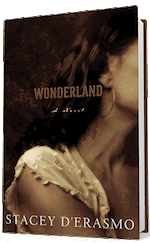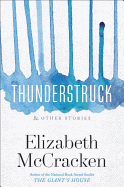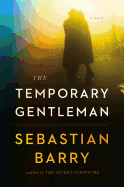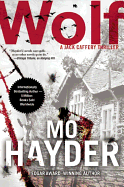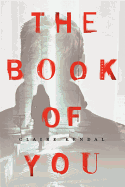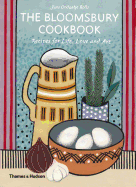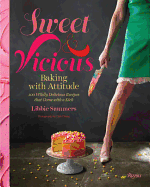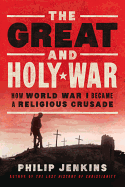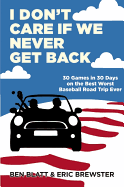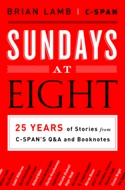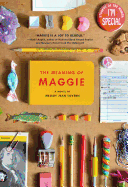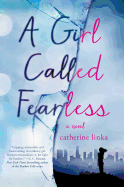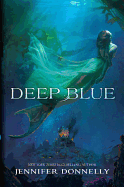 Stacey D'Erasmo is a recipient of Guggenheim and Stegner Fellowships, the author of three previous novels (Tea, A Seahorse Year, The Sky Below) and a book of nonfiction, The Art of Intimacy. Her work has also appeared in the New York Times Magazine and Book Review, Bookforum and Ploughshares, among others. She teaches in Columbia University's MFA program.
Stacey D'Erasmo is a recipient of Guggenheim and Stegner Fellowships, the author of three previous novels (Tea, A Seahorse Year, The Sky Below) and a book of nonfiction, The Art of Intimacy. Her work has also appeared in the New York Times Magazine and Book Review, Bookforum and Ploughshares, among others. She teaches in Columbia University's MFA program.
You've written about various types of artists in your previous novels, but Wonderland's Anna Brundage is your first musician-protagonist. Who or what inspired you to create Anna's life and career?
I had noticed for a number of years that there were these female musicians--Patti Smith, Linda Thompson, Vashti Bunyan--who left the scene, sometimes for long periods of time, and then came back, basically successfully. I was fascinated by that, and fascinated, too, by the particular freedom and challenges of that kind of performer's life. The way that musicians perform, in the moment, with both body and mind onstage--I was really interested in getting inside that experience.
Did you consciously decide to make Anna a songwriter as well as a singer?
Oh, certainly. I always wanted her to be the maker of all the parts of her art. And songwriting, of course, isn't just the words--it's the notes and chords and breaths.
Are you also a musician in addition to being a writer, or did you acquire Anna's musical vocabulary through research?
I'm not a musician, not even a little bit. If you ever heard me sing, you would feel a mixture of pity and terror. I don't play any instruments. In figuring out how to create Anna, I read a number of musicians' biographies and autobiographies--Dean Wareham's Black Postcards, Juliana Hatfield's When I Grow Up, Keith Richards's Life and so on--and I talked to some musicians about their lives and experiences. I started from the idea that she was more or less a self-taught musician, so her way of describing her own work wouldn't necessarily be all that technical. She's often talking about trying to get to a certain kind of unique sound that she hears in her head, a sound that wouldn't already have a name. So I tried to approach her musical ideas that way, as freeform poetry, maybe.
You went on tour with Scissor Sisters to get some background information. Which countries did you tour, and what were some of the most valuable--or surprising--things you learned in terms of writing about Anna's tour?
I was on tour with Scissor Sisters for a little more than two weeks (which was as long as I could afford to do it), and we went to the Czech Republic, Slovakia, Latvia, Estonia, Austria, Norway and Germany. It was totally invaluable for small details, like the way people put their shoes in the hallway of the tour bus at night outside their bunks or what a soundcheck is like. But in a larger sense, it surprised me how much stillness and drifting downtime there is on a tour--many hours of driving, or flying, or waiting backstage. It feels, often, very suspended in time, as if one is in a universe where time itself works differently.
How did you settle on Wonderland as the title for both Anna's comeback album and your novel?
That was always the title. I've loved Alice's Adventures in Wonderland ever since I read it as a child, and that idea of voyaging into a different world felt really right to me when writing about this kind of musician on the road. It is a wonderland, which doesn't mean it's always pretty. It can be strange and scary as well, as it is for Alice.
Unlike your first two novels, your more recent work, including Wonderland, uses first-person narration. Why?
Because I must be some sort of masochist--first-person is really hard to work with, and it threatens to go wrong, to get claustrophobic or stagey or just boring, at every turn. In both The Sky Below and Wonderland, I was interested in characters telling a story about themselves that they're trying to understand even as they're telling it. They're trying to understand why they did what they did, why they made the choices they made. Telling that in the first person increases the sense of doubt and mystery. There is no overarching narrator who knows more about them than they do.
Wonderland inserts fragments of Anna's recent and distant past into her comeback tour. The influence of her bohemian childhood, particularly the work of her father, who "reinvented" sculpture, emerges through these fragments. Did you write the novel in the same order that the reader experiences it?
I did, actually. Every juxtaposition and break made a kind of sense, or music, to me, and the order wasn't interchangeable. In revising, I moved things around a bit here and there to increase tension or simple narrative sense, but overall those associative leaps and shifts were always in that pattern. The past, the present, the future and the future that never happened (that scene where she walks through the Roman Forum with Simon and Maya) are in some sense happening simultaneously.
How do you think Anna ranks the importance of intimacy vs. music in her life?
I'm not quite sure what that question means, and I have to ask, Would that be asked of a male character in a similar situation? Did anyone ask Bucky Wunderlick, of DeLillo's novel Great Jones Street, how he ranked intimacy vs. music? Also, it isn't a "vs." for Anna at all. In life and in art, she's trying to figure it out, to get to the next part, to find a chord, emotionally and musically, that feels true. They aren't separate journeys, and both literally and figuratively, they aren't ranked. In the most basic way, she's doing both at the same time, body and soul.
What is the significance of the epigraph to Wonderland: "The obvious analogy is with music." --Lyn Hejinian, My Life
Hejinian is talking about her life--it's a great, unclassifiable book, that one, I highly recommend it--and I think she means that a life makes its own sort of improvisational music. But it's only ever and can only be an analogy, an approximation. Anna's life is music, and her music has a life, but the meaning of either is never reducible. It's always an approximation, a rough translation.
Has your work as a critic affected your work as a novelist?
Not in a direct way in terms of style or form. What it's affected, and generally much to the good, is my perception of how vast, wide and deep literature is. If you spend even a small amount of time reading other writers working now, you see right away how many fantastic choices can be made and how many ways there are to write. My work as a critic has given me an extraordinary amount of permission to write as I wish.
Please name a few of your favorite writers, perhaps the ones most relevant to Wonderland.
Well, Joan Didion's Play It As It Lays, certainly. Elizabeth Hardwick's Sleepless Nights, all of Jane Bowles, Michael Ondaatje's The Collected Works of Billy the Kid, Anne Carson's Autobiography of Red and--this may sound odd--all of Graham Greene. I'm fascinated by the way his characters have to make moral and esthetic choices.
If you could inhabit the life of any currently performing musician for a fixed period of time, whose life would you choose, and for how long?
Beyoncé, without a doubt. I want a month, on tour, as Beyoncé in all her different costumes and personae. I would give anything to be that many extraordinary beings in that short a period of time, and to take audiences to that place. I'd love to know what that feels like. --Holloway McCandless
Stacey D'Erasmo: Life's Improvisational Music
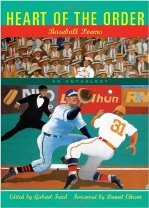 Robert Francis extols precision in "The Pitcher": "His art is eccentricity, his aim/ How not to hit the mark he seems to aim at,/ His passion how to avoid the obvious,/ His technique how to vary the avoidance." Neighborhood baseball as played by "married teenagers working knockout shifts" is evoked by Yusef Komunyakaa in "Glory": "The old deacons & raconteurs/ Who umpired made an Out or Safe/ Into a song & dance routine." Gail Mazur describes, in "Listening to Baseball in the Car," the announcer: "(no, he's a sort of sage, disconsolate/ philosopher of batting slumps/ and injuries)." Lou Lipsitz, in explaining "Why Baseball Doesn't Matter," evokes basketball with more action ("dragonflies in a mating dance"), football ("that heavy military vibe"), steroids, player salaries, greedy owners, but in the end still feels the pull of the game, the season, the mystery--"It's that tonight, in midsummer/ under an inquisitive fraction of a moon,/ the wind pulls a thin blanket of dust/ off the distant fields and carries it for miles."
Robert Francis extols precision in "The Pitcher": "His art is eccentricity, his aim/ How not to hit the mark he seems to aim at,/ His passion how to avoid the obvious,/ His technique how to vary the avoidance." Neighborhood baseball as played by "married teenagers working knockout shifts" is evoked by Yusef Komunyakaa in "Glory": "The old deacons & raconteurs/ Who umpired made an Out or Safe/ Into a song & dance routine." Gail Mazur describes, in "Listening to Baseball in the Car," the announcer: "(no, he's a sort of sage, disconsolate/ philosopher of batting slumps/ and injuries)." Lou Lipsitz, in explaining "Why Baseball Doesn't Matter," evokes basketball with more action ("dragonflies in a mating dance"), football ("that heavy military vibe"), steroids, player salaries, greedy owners, but in the end still feels the pull of the game, the season, the mystery--"It's that tonight, in midsummer/ under an inquisitive fraction of a moon,/ the wind pulls a thin blanket of dust/ off the distant fields and carries it for miles."


